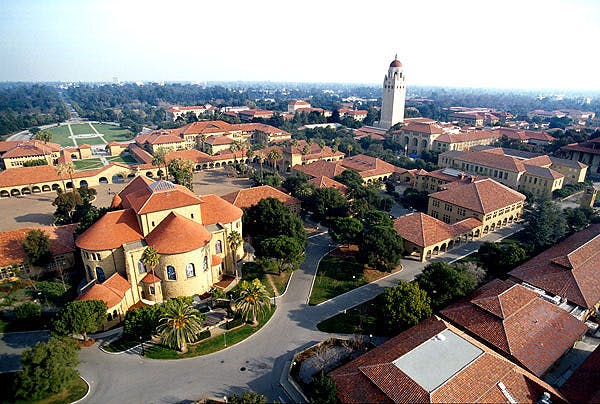Anti-Israel Hunger Strikers at Stanford Face a Rude Reality Check From Unyielding University Leaders
‘Stanford’s official response to the “hunger strike” is basically: “Good luck with that,”’ a Zionist advocacy account muses.

More than a dozen students and staff at Stanford University who have vowed not to eat until the school agrees to divest from Israel are in for a painful ride as the administration makes clear that it won’t cede to the protestors’ demands.
The “Stanford Hunger Strikers for Justice in Palestine” — a cohort of at least 12 students and three faculty members — kicked off their fast on Monday to protest “the genocide in Gaza” and to pressure the school to agree to several reforms. Now, four days in, the fasters are still no closer to achieving their goals.
To the contrary, the administration has already communicated to the students that their hunger strike will not sway its policies. “The university does not intend to negotiate in response to your demands,” Stanford’s vice provost for student affairs, Michele Rasmussen, informed the students.
While she noted that the school’s leaders “respect the rights of students to express their views in ways within the limits of our time, place, and manner rules,” she implored the protesters “to consider forms of expression that do not jeopardize their health and well-being,”
Ms. Rasmussen ended her message by encouraging the students to “take precautions to support your health,” and reminded them that the school’s health services are available for their use.
The blunt and unrelenting message was met with praise from higher education scholars and members of the Jewish community. A fellow at the American Council of Trustees and Alumni, Steve McGuire, applauded the university for its “correct response to its hunger strikers.” A popular pro-Zionist account on X, JewsFightBack, mused that “Stanford’s official response to the ‘hunger strike’ is basically: ‘Good luck with that.’”
The participants are vowing not to consume any food until the administration agrees to publish a full report on the university’s investments, divests itself from companies that “profit from Israel’s siege of Gaza,” the district attorney drops charges against 12 Stanford students and alumni who were arrested after they broke into the university president’s office, and pledges “noncompliance” with the federal government’s crackdown on higher education.
“We do not know how long our bodies will hold. We know only that this fast etches a record of choice,” the group wrote in a public letter. “What will Stanford do as mass atrocity knocks against its sandstone arches: will it marshal the courage to confront injustice with unequivocal action, or cling to a veneer of neutrality until that timidity congeals into complicity?”
The fast at Stanford comes amid a larger anti-Israel hunger strike that’s taking place at universities across California, including at San Jose State University, San Francisco State University, Sacramento State University, California State University Long Beach, and California State University East Bay.
“We’re inspired by the CSU and we thought that what they were doing was super courageous … and saw this as a tactic we can take on as well,” one of the Stanford strikers, Maryama Salam, told a San Francisco radio station, KQED. “We’re really proud of their work, and we want to bring that to our campus as well,” she added.
The California State University student protesters have been carrying on the fast for 11 days and pledge to continue indefinitely. The school system, however, has already shot down their requests, informing the students that the schools will “not be altering” its investment policies.
On the east coast, students at Yale are on the fifth day of their “hunger strike for Gaza.” The protesters are facing similar opposition, however. So far, none of their demands have been taken into consideration by the administration nor has the group succeeded in securing a meeting with the school’s president, Maurie McInnis.

